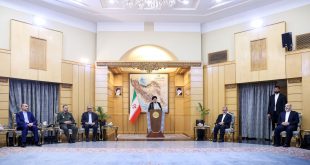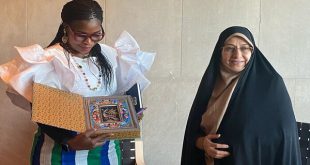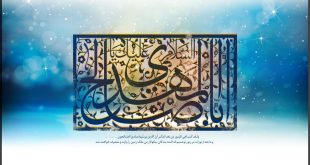Head of the Atomic Energy Organization of Iran (AEOI) Mohammad Eslami warned on Wednesday that a deal in the Vienna talks will be impossible unless the International Atomic Energy Agency (IAEA) drops its false allegations against Tehran’s nuclear program.
Elsami said that there would be no “re-implementation day” for the 2015 nuclear deal, despite the diplomatic efforts being made to restore the multilateral accord, if the United Nations nuclear watchdog fails to drop its baseless claims against Tehran’s nuclear work.
“The IAEA’s demands from Iran had no basis under the Safeguards agreement between the two sides and were part of the so-called possible military dimension (PMD) dossier, which had been closed under the 2015 agreement,” he added.
The official once again rejected the IAEA’s claims and what the nuclear agency called “evidence” against three sites in question in Iran and reaffirmed that the Tehran had no secret nuclear sites.
“What we wrote down is definitive,” the AEOI noted, referring to Iran’s comments on an EU-drafted text aimed at restoring the Iran deal.
“Our goal and emphasis is that there will be no re-implementation day for [the Iran deal] if [the case] of these questions are not closed. We have not and cannot back down. We cannot sit back and [let them] impose sanctions on the Iranian people for delusional reasons,” he continued.
AEOI Spokesperson Blames IAEA for Raising Excessive Demands from Iranhttps://t.co/5gZWi7z6Yk pic.twitter.com/k52t3Eavq6
— Fars News Agency (@EnglishFars) August 30, 2022
Elsewhere in his remarks, Eslami said Iran managed to build more than 1,000 new-generation IR-6 centrifuges within a single year.
“Compared to the restrictions that had been created for us in the negotiations and in the JCPOA, and while they imagined we would be having two middle cascades of 20 to 30 IR-6 centrifuges from year eight, we managed to go past 1,000 devices within a year and advanced well beyond what they imagined,” he added, reffering to the Joint Comprehensive Plan of Action.
The nuclear chief further elaborated on the AEOI’s performance over the past year, noting Iran’s nuclear authority had on agenda an increase in the uranium enrichment capacity using efficient IR-6 centrifuges as well as the purity level.
“We managed to enforce certain reforms in the processes related to enrichment and to prepare the use of enriched material for practical purposes other than producing fuel or stockpiling, like the 20-percent enrichment, which is used for the Tehran reactor fuel,” Eslami continued.
“But completing, continuing, and producing the 60-percent target, which few countries in the world have done, was advanced research work to enable us to effectively use targets to produce radiopharmaceuticals,” the official stressed.
Elsewhere, he was asked to explain what will happen to the mutual commitments of Iran and its JCPOA partners, which have different time frames, in case the two sides agree to revive the accord.
“The dates stipulated in the JCPOA are Adoption Day, Day Zero, and Implementation Day. No matter how much time has passed from them, the criterion is the same dates. What Iran has been constantly emphasizing in the process of the negotiations is that the same time table envisaged in the 2015 JCPOA should remain and be the criterion,” Eslami replied.
Nuclear Chief Stresses Iran’s Tough Stance Against IAEA’s Israeli-Driven Attitudehttps://t.co/VkNXMIZqlr pic.twitter.com/RQWCfk4NwI
— Fars News Agency (@EnglishFars) August 23, 2022
He was echoing remarks by Iranian President Seyed Ebrahim Rayeesi who has recently stated that an agreement with the world powers hinges on the settlement of safeguards issues between Tehran and the IAEA.
In a news conference in Tehran on Monday, Rayeesi emphasized that all issues with the IAEA concerning the nuclear safeguards must be resolved before any deal for revival of the 2015 accord.
“Without settling those issues, reviving the 2015 deal known as the JCPOA makes no sense,” he noted.
READ MORE: Nuclear Chief Says Negotiations Should Lead to Full Removal of Sanctions, Accusations
Iran has always had full cooperation with the IAEA and allowed it to visit the country’s nuclear sites, but calls the nuclear agency’s approach unconstructive and destructive.
In early June, the IAEA’s Board of Governors adopted a resolution, accusing Iran of not cooperating with the nuclear agency.
Iranian officials criticized the US and the European trio for pushing a resolution against the country at the UN atomic body’s board of governors, calling the move irresponsible. Tehran stressed that the IAEA is directly influenced by the Israeli regime, and the measure has undermined the country’s constructive cooperation with the nuclear watchdog.
Back in June, Eslami said that heightened propaganda against Tehran’s peaceful nuclear program, including the recent resolution at the UN nuclear watchdog, is part of the Western states’ maximum pressure policy against the Iranian nation.
Iran has 3 percent of the world’s nuclear capacity, but more than 25 percent of inspections have been carried out in Iran, he added.
The Iranian nuclear chief referred to the recent resolution proposed by the US and E3 to the IAEA Board of Governors, stressing that it was the last test by the enemies.
In response to the IAEA’s move, Iranian Foreign Minister Hossein Amir Abdollahian stated that the recent resolution approved by the UN nuclear watchdog against Tehran was a US plot to force Tehran to make concessions in the Vienna talks.
 صراط عشق صراط عشق
صراط عشق صراط عشق



